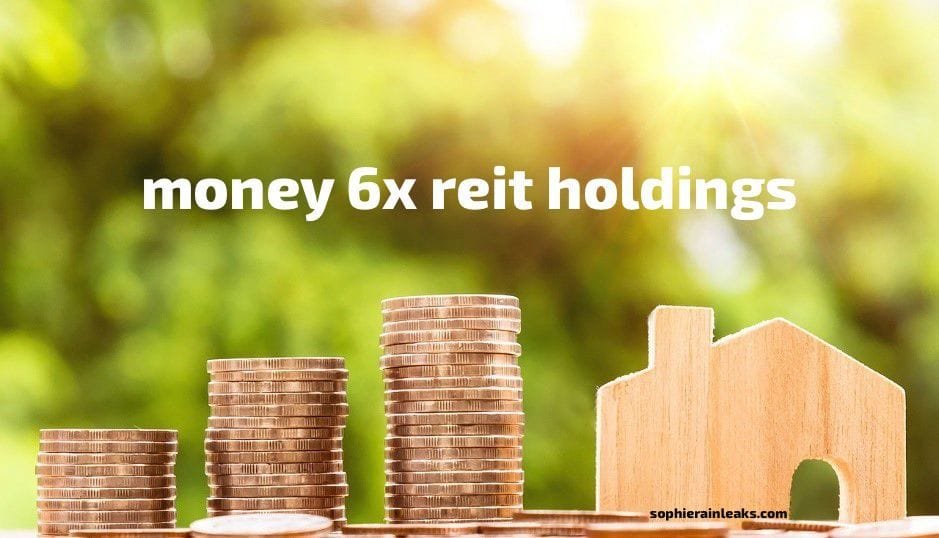Understanding REITs and Their Importance in Investment
Real Estate Investment Trusts (REITs) are companies that own, operate, or finance income-producing real estate across various property sectors. These trusts allow individual investors to earn a share of the income generated through commercial real estate without having to buy, manage, or finance any properties themselves. Structured similarly to mutual funds, REITs provide an accessible avenue for investors to include real estate in their portfolios.
One of the key benefits of investing in REITs is their potential for income generation. Many REITs distribute a substantial portion of their earnings to shareholders in the form of dividends, often resulting in attractive yields compared to other equity or fixed-income investments. This steady income stream can be particularly appealing for income-focused investors seeking consistent cash flow amid fluctuating market conditions. Additionally, REITs tend to offer diversification benefits. By investing in a basket of properties managed by professionals, investors gain exposure to multiple asset types—such as residential, commercial, and industrial real estate—mitigating the risks associated with investing in a single property.
Furthermore, REITs provide significant liquidity compared to direct real estate investments. Shares of publicly traded REITs can be bought or sold on major stock exchanges, making them a more flexible option for investors looking to adjust their portfolios quickly. This liquidity not only allows for quicker access to cash but also facilitates market adjustments, as investors can respond swiftly to changes in property values or overall economic conditions.
In essence, understanding the structure and benefits of REITs is crucial for any investor considering options to enhance their investment portfolio. They serve as a compelling complement to traditional asset classes, allowing for a more balanced and accessible investment approach.
What Are Money 6x REIT Holdings?
Money 6x REIT Holdings represent a specialized investment strategy within the real estate investment trust (REIT) landscape. This approach focuses on leveraging capital to invest in a diversified portfolio of real estate assets, generally targeting properties that provide stable cash flow and potential appreciation. Unlike traditional REITs, which may invest broadly across various property types, Money 6x REIT Holdings often emphasize sectors with higher yield potential, such as commercial real estate, industrial spaces, and multi-family housing. This focused investment can provide both income and value growth.
The financial structure of Money 6x REIT Holdings is designed to enhance returns by utilizing a combination of equity and debt financing. By applying a six times leverage ratio, which means that the value of assets is six times greater than the capital contributed by the investors, these REITs are positioned to capture significant upside in appreciating markets. While this strategy can lead to higher-than-average returns, it also introduces additional risk, especially in volatile real estate markets where property values can fluctuate dramatically.
Additionally, the anticipated returns from Money 6x REIT Holdings often surpass those of traditional REITs, appealing to investors seeking passive income through dividends and capital gains. However, investors should weigh the potential benefits against the inherent risks associated with heightened leverage and sector concentration. By comparing Money 6x REIT Holdings with conventional REIT investments, it becomes evident that while the former may yield greater rewards, they also carry a higher degree of risk. Understanding these dynamics can aid investors in making informed decisions that align with their risk tolerance and investment objectives.
How to Invest in Money 6x REIT Holdings
Investing in Money 6x REIT holdings necessitates a strategic approach that involves several critical steps. Initially, potential investors should begin by selecting the right REIT funds that align with their financial goals and risk tolerance. Research various REITs that offer diversification across sectors such as residential, commercial, and industrial properties. By carefully choosing funds that focus on high-quality real estate assets, investors can improve their chances of generating favorable returns.
Once the funds have been identified, evaluating their performance metrics becomes essential. Key performance indicators (KPIs) to consider include the dividend yield, funds from operations (FFO), and net asset value (NAV). These metrics provide insights into how well a REIT is performing relative to its peers. Investors should also assess the historical performance of the Money 6x REIT holdings to gauge their resilience during fluctuating market conditions. A strong historical performance can indicate a well-managed fund with potential for future returns.

In addition to performance, assessing risk levels is imperative. Each REIT comes with its inherent risks, including market volatility, interest rate changes, and economic fluctuations. Investors should analyze the REIT’s balance sheet and debt levels to determine its financial health. Understanding these risk factors allows investors to make informed decisions that align with their risk appetite and investment timeline.
Furthermore, potential investors need to stay informed about market trends that may impact Money 6x REIT holdings. Monitoring economic indicators, such as employment rates, inflation, and consumer confidence, can provide valuable context for investment decisions. It is advisable to conduct thorough due diligence before entering any investment and to create a balanced portfolio that allocates funds strategically among various REIT holdings. This diversified approach can mitigate risk while maximizing the potential for returns over time.
The Future of Money 6x REIT Holdings: Trends and Predictions
The future of Money 6x REIT Holdings appears promising due to various emerging trends in the real estate market. As we advance into an era marked by significant macroeconomic shifts, understanding these trends is crucial for investors contemplating their strategies. One of the primary factors influencing the outlook of these holdings is the ongoing economic recovery post-pandemic. Notably, the demand for commercial and residential real estate is showing signs of resurgence, bolstered by ongoing urbanization trends and a growing population. Experts suggest that the Money 6x REIT Holdings can benefit from these developments as they traditionally focus on sectors with robust demand.
Technological advancements are also reshaping the landscape of property management, offering efficiency and enhancement in tenant experiences. The use of technology in managing assets is becoming increasingly prevalent, whereby data analytics and artificial intelligence facilitate better decision-making and streamline operations. These innovations not only improve the operational efficiency of Money 6x REIT Holdings but also attract a tech-savvy investor demographic, seeking precision and transparency in their investments.
Furthermore, evolving investor preferences are steering financial strategies towards sustainability and social responsibility. A growing number of investors are prioritizing environmentally friendly practices and high sustainability standards in their real estate investments. This shift enhances the attractiveness of Money 6x REIT Holdings, as these entities are beginning to integrate green initiatives into their portfolios. Market forecasts indicate that real estate investment trusts (REITs) embracing sustainability will likely outperform their peers, making them a compelling choice for forward-thinking investors.
In conclusion, as we consider the trends influencing Money 6x REIT Holdings, it is evident that macroeconomic factors, advancements in technology, and changing investor preferences hold significant implications for future investments. Staying attuned to these dynamics can provide valuable insights for any investment strategy focused on maximizing returns in the real estate sector.
you may also read
